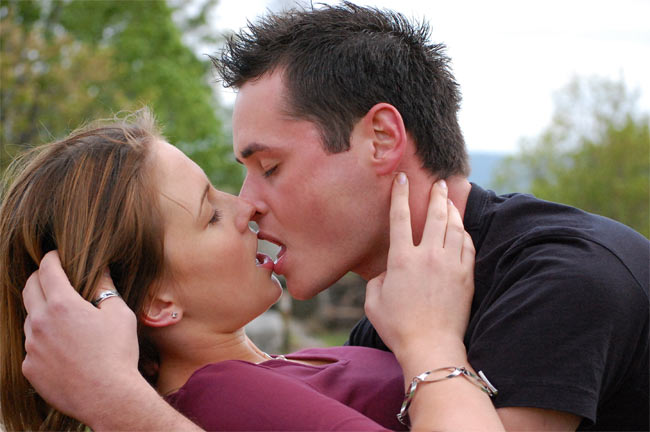Sex and the Evolution of Love

I am such a loser.
According to evolutionary psychologists, women are supposed to look for mates who are good providers and willing to support a brood of children. But I've chosen an artist, someone with no real income, no access to affordable health care and no financial future.
But then he's a loser too, at least in the evolutionary sense. He's supposed to look for a young, attractive woman who could have lots babies and pass along his genes. Instead, he got me, someone 15 years older and so past her reproductive prime that we'd be on the cover of The National Enquirer if I ever became pregnant.
Truth is, lots of people aren't doing their evolutionary best to pass on their genes, and that's because love, not natural selection, is often guiding mate choice, and love is the wild card in the game of reproductive success.
Why is love so fickle?
You'd think that natural selection would have moved swiftly to couple love and sex. But no, we often have sex with people we don’t love and the sex with people we do love often gets boring.
And we make babies with all sorts of people, sometimes very inappropriate people.
Sign up for the Live Science daily newsletter now
Get the world’s most fascinating discoveries delivered straight to your inbox.
Why hasn’t natural selection moved swiftly to marry love with sex so that passing on genes (that is, making babies) would be a more reliable path to reproductive success?
The answer is that evolution didn't count on love. It just counted on sex .
Humans, like all animals, are compelled to have sex because it's the only way to pass on genes. For most animals, this is a pretty straightforward affair. Females come into heat, a short period during ovulation when they are interested in sex and physically able to perform the act. Then, they mate with males who usually have to compete for their favors, and it's over.
Human mating is more complex because women don't go into heat; we are able, if we choose, to have sex during times outside of ovulation when conception isn't possible. And since women are more available, men don’t have to compete physically for their favors. Men don’t need antlers, big furry manes or large canines, although some men show off their money and fancy cars in hopes of attracting the most desirable mates.
Human mating is also evolutionarily complex because we are saddled with these big brains that force us to think way too much about everything, especially love and sex.
We see all those potential partners and then spend endless hours evaluating their good and bad points. No lizard would do that.
Or we fall madly in love with someone in an instant, are crazed for months, and then wake up one day and wonder who let that person in the bed. Or we mate with people who are the worst choice for passing on genes, and then we keep doing it, over and over.
We also yearn for movie stars, models, and rock stars, wasting time and energy on a no-win situation because those celebrities have no idea we are alive.
The human sex life has become a mess because our brains have hooked up with our hormones, throwing a monkey wrench into the usually simple evolutionary business of making babies.
Given this mess, it's amazing that the human species didn’t go extinct long ago.
But apparently, some people are mating with the correct evolutionary partner, making babies and passing on genes.
Not me. At least not today.
Meredith F. Small is an anthropologist at Cornell University. She is also the author of "Our Babies, Ourselves; How Biology and Culture Shape the Way We Parent" (link) and "The Culture of Our Discontent; Beyond the Medical Model of Mental Illness" (link).
- Top 10 Missing Links
- The Sex Quiz: Myths, Taboos and Bizarre Facts
- Top 10 Aphrodisiacs









